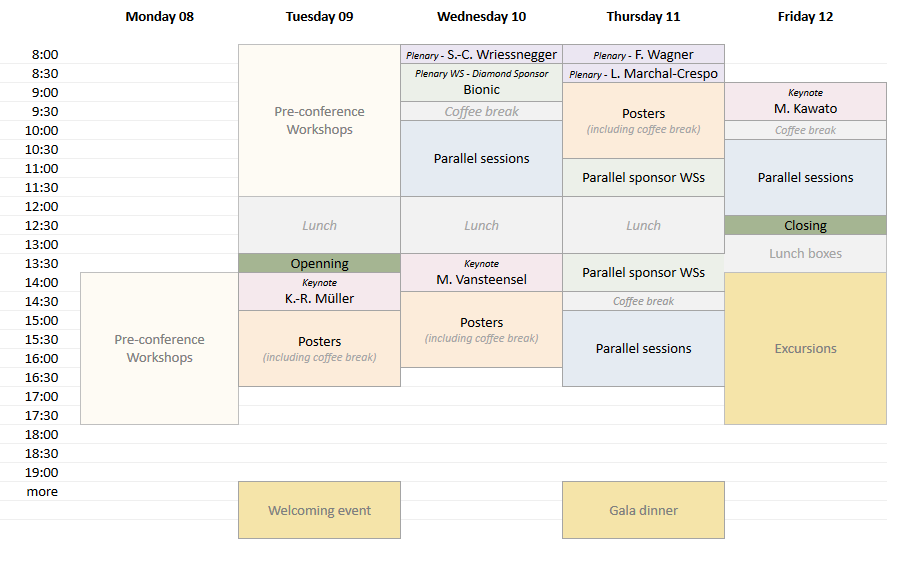
Confirmed Keynote Speakers
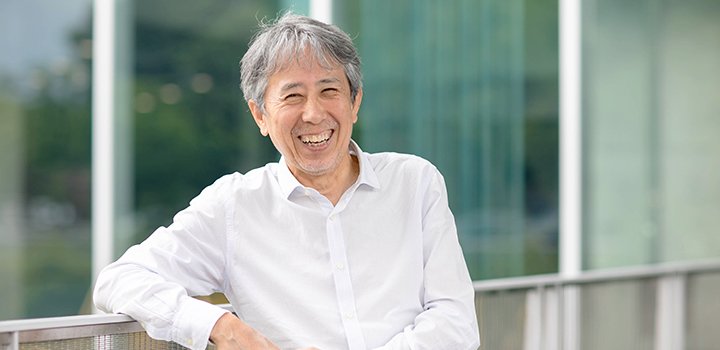
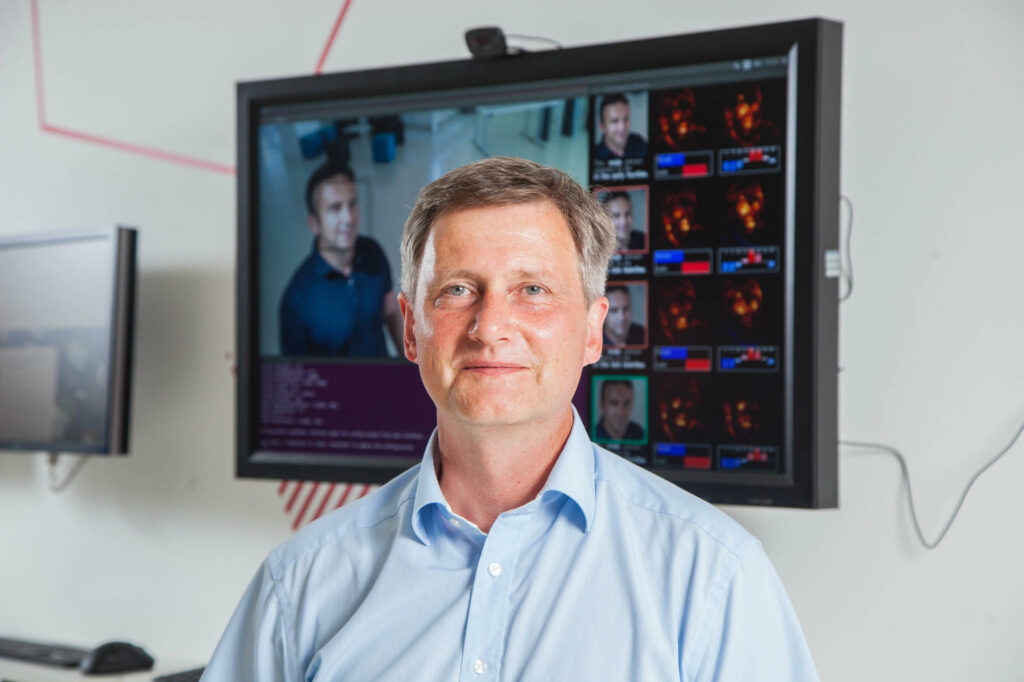
Max Planck Institute for Informatics, Germany
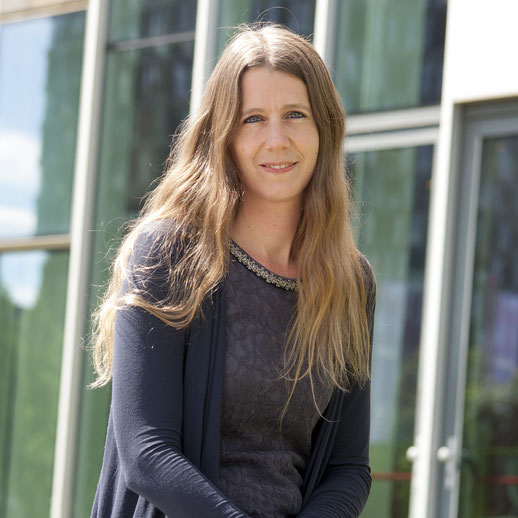
Talk title: Opportunities and Challenges of Implanted ECoG-based BCIs for Communication
Abstract: The field of implanted Brain-Computer Interfaces is evolving rapidly. One particularly active line of development aims to alleviate the communication problems of people with severe motor impairment due to, among others, late-stage amyotrophic lateral sclerosis and brainstem stroke. I will discuss the work that has been conducted in the Utrecht BCI team over the past decades on the development and validation of electrocorticography (ECoG)-based communication-BCIs. In this work, important insights have been gained from people with epilepsy who were implanted with ECoG electrodes for clinical diagnostic purposes. These insights have paved the way for research in which we target at-home use of ECoG-based BCIs by people with severe motor impairment. I will illustrate the potential value of ECoG based communication-BCIs for these individuals, as well as the technical, neuroscientific and practical challenges that need to be overcome before these technologies can be widely offered as a clinically viable communication solution to be used in settings of daily living of the target populations.
Biosketch: Mariska Vansteensel, PhD, is an Assistant Professor at the UMC Utrecht Brain Center in Utrecht, The Netherlands. She is also the current President of the International BCI Society. Her main research goal is to use the wealth of neuroscientific knowledge directly for the benefit of people with disease or disability. The main focus of her research since 2007 has been the development and validation of implantable electrocorticography (ECoG)-based Brain-Computer Interfaces (BCI) for communication in individuals with severe motor and speech impairment. She has conducted research on the proof of concept, working with epilepsy patients who receive ECoG electrodes for diagnostic purposes and on the first worldwide investigation of the use of fully implantable BCIs in settings of daily living of people with severe motor impairment. In her current research, she utilizes the detailed organization of the sensorimotor areas to accomplish higher-dimensional ECoG-BCI control and faster and more efficient BCI-based communication. She believes that BCI research and development should take a user-centered approach, so that the developed devices match the actual needs and requirements of end-users and their caregivers. In addition, she aims to contribute to responsible clinical implementation of BCIs by drawing attention to a need for standardized reporting, by trying to increase the involvement of clinicians and other BCI stakeholders in the development of this technology and by engaging in discussions related to important ethical dilemma’s related to implanted BCIs for people with severe motor impairment. Finally, she recently established a research line to assess the potential of implanted BCI technology for pediatric populations with motor and speech impairment.
Confirmed invited plenary speakers
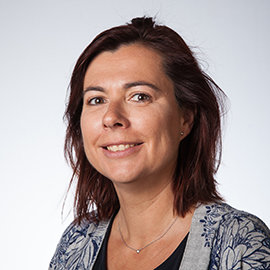
Talk title: Towards a meaningful robot-assisted neurorehabilitation experience
Abstract: Every year, millions of stroke survivors lose their functional autonomy due paralysis, posing a tremendous societal and economic challenge. In absence of a cure for stroke, clinical evidence suggests that patients should engage in personalized, task-specific, high-intensity training to maximize their recovery. In this talk, I put forward a new mindset to overcome many of the fundamental limitations of traditional approaches in stroke neurorehabilitation. I present the new trends in rehabilitation robotics and immersive virtual reality that leverage realistic interaction with tangible virtual objects and discuss how a better understanding of human skill acquisition can improve neurorehabilitation approaches.
Biosketch: Laura Marchal-Crespo is an Associate Professor at the Department of Cognitive Robotics, Faculty of Mechanical Engineering, Delft University of Technology, the Netherlands. She is also associated with Erasmus Medical Center (Rotterdam, the Netherlands) and the Faculty of Medicine at the University of Bern (Switzerland). Her research focuses on the general areas of human-machine interaction and biological learning and, in particular, the use of robotic devices and immersive virtual reality for the assessment and rehabilitation of patients with acquired brain injuries such as stroke.
Webpage: http://www.mlnlab.nl/
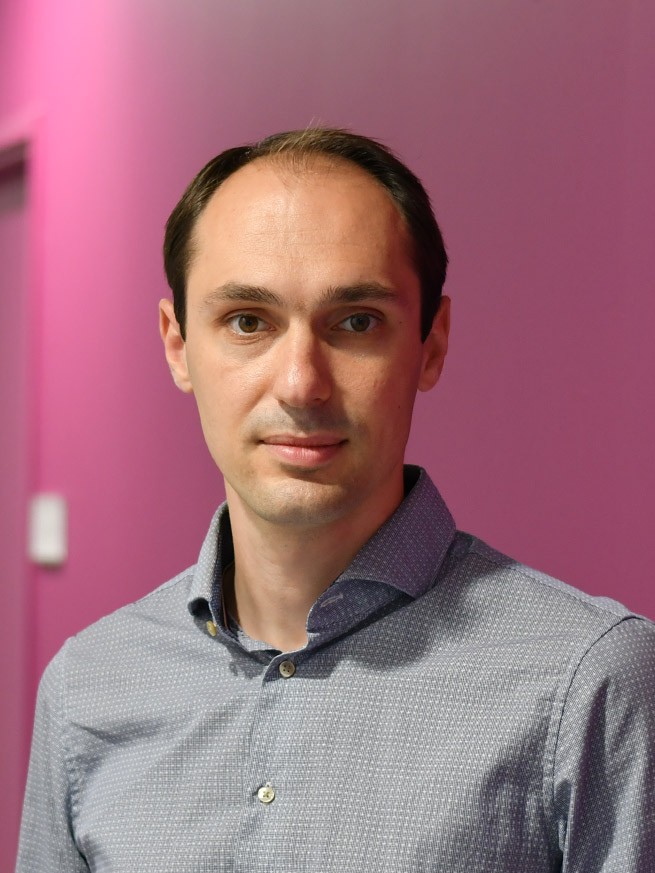
Talk title: Neuroprosthetic modulation of distributed spinal cord and brain networks for restoring motor and cognitive functions in neurological disorders
Abstract: Neuroprosthetics is a multidisciplinary field at the interface between neurosciences and biomedical engineering, which aims at replacing or modulating parts of the nervous system that get disrupted in neurological disorders or after injury. Although neuroprostheses have steadily evolved over the past 60 years in the field of sensory and motor disorders, their application to higher-order cognitive functions is still at a relatively preliminary stage. Nevertheless, a recent series of proof-of-concept studies suggest that electrical neuromodulation strategies might also be useful in alleviating some cognitive and memory deficits, in particular in the context of dementia.
In this talk, I will first introduce neuroprosthetic technologies for restoring motor function after spinal cord injury, based on the principle of spatially and temporally specific spinal cord stimulation protocols. These technologies were first developed in preclinical models, in particular non-human primates, which led to their translation into patients with either incomplete or complete spinal cord injury. Next, I will propose a translational path for the development of invasive cognitive neuroprostheses that could interface with large-scale brain network oscillations. Specifically, I will present the technological development of brain implants targeting distributed brain areas involved in memory processes, and preliminary testing in non-human primates trained to perform a short-term memory task. This parallel between motor and cognitive neuroprostheses highlights important common principles such as the need for neuroprosthetic systems that enable multisite bidirectional interactions with the nervous system.
Bioskecth: My research is at the intersection between Neuroscience and Neuroengineering. I strive to understand how the dynamics of neuronal networks become altered in neurological disorders or after injury, and how to restore their natural behavior using Neuromodulation / Neuroprosthetic approaches.
During my early years as a PhD student at Brown University, I developed new tools to record and stimulate the brain simultaneously and investigated the cortical dynamics that underly the transition to epileptic seizures in rodent models and epileptic patients. Next, during my postdoc at the Ecole Polytechnique Fédérale de Lausanne (EPFL), I designed motor neuroprostheses to restore locomotion in non-human primates and managed a team of about 10 scientists, engineers and physical therapists to translate these technologies into patients with spinal cord injury in the context of a first-in-human clinical trial (Wagner et al., Nature 2018; Rowald et al., Nat Med 2022).
Thanks to a Neurocampus chair for young group leaders provided by the Nouvelle-Aquitaine region and the University of Bordeaux, I obtained in 2020 an independent position at the Institute of Neurodegenerative Diseases, where I have set up the “Neuromodulation and Neuroprosthetics” team. We are working on expanding neuroprosthetic systems beyond their current applications in motor disorders, towards neurocognitive impairments. I obtained in 2022 a permanent researcher position at the French National Center for Scientific Research (CNRS), and a starting grant from the European Research Council (ERC) to pioneer these approaches in non-human primates. My team is also part of the new Vascular Brain Health Institute (IHU VBHI) in Bordeaux, in which we plan to test digital therapeutics, including non-invasive brain stimulation, for treating cognitive deficits in patients with cerebral small vessel disease.
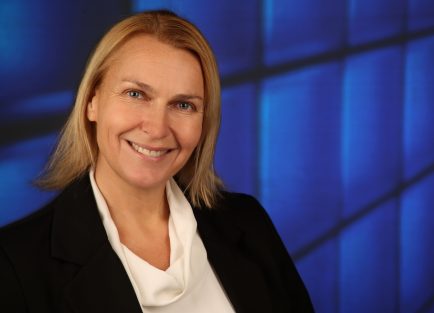
Talk title: Towards engaging neuroadaptive environments: Examples and Challenges
Abstract: Recognizing and understanding the neural correlates of different mental states, like stress, high mental workload, fatigue or different emotions can have significant implications for health, education, performance optimization, and technology development. Specifically, in regards to the development of neuroadaptive systems where technology adapts in real-time based on the user’s cognitive and affective states. For example, by detecting when individuals are experiencing high workload, adjustments can be made to the task demands or workload distribution to maintain optimal performance in learning and memory. But virtual reality environments can also be designed to simulate a variety of real-world scenarios, allowing patients to confront their fears or anxieties in a controlled manner. This so-called Virtual Reality Exposure Therapy (VRET) offers a safe and controlled environment for exposure therapy of several types of fears, like fear of heights or spiders. By incorporating EEG-based mental state detection, therapists can further enhance engagement by providing real-time feedback and reinforcement based on the patient’s reactions.
In this talk I will introduce some studies dealing with emotion recognition in different mixed reality environments, discuss open challenges which have been mostly neglected in past research and present some ideas for advancing future neuroadaptive systems by considering a multifactor approach.
Biosketch: Selina Christin Wriessnegger is Associate Professor and Deputy Head at the Institute of Neural Engineering (BCI-Lab), Graz University of Technology, Austria. From 2001 to 2005 she was PhD student at the Max-Planck-Institute for Human Cognitive and Brain Sciences and received her PhD from the Ludwig-Maximilians University (Munich). During that time, she spent one year in Rome as research fellow at IRCCS (Fondazione Santa Lucia), Laboratory for Human Psychophysiology. In 2017 she was visiting professor at SISSA (Scuola Internazionale Superiore di Studi Avanzati) Trieste and in 2018 and 2019 she was guest professor at the University of Padova (Padova Neuroscience Center). In 2020 she received her Habilitation (venia docendi) in Cognitive Neuroscience from Graz University of Technology.
She is Associate Editor of Frontiers in Neuroscience, special section Brain-Computer Interfaces and Topic Editor “Women in Brain-Computer Interfaces and Beyond”. Since 2011 she is Co-organizer of the International Graz BCI Conference, since 2009 program committee member of the NeuroIS, since 2022 steering committee member of the IEEE MetroXRAINE and board member of The Styrian Brain Research Initiative (INGE St).
Her primary research interests are in the areas of neural correlates of motor imagery, novel applications of Brain-Computer interfaces for healthy users and neurophysiological mental state recognition. Active research topics deal with gaining deeper insights into brain dynamics underlying affective states considering different neuroimaging techniques and personal information with the goal of improving their reliability and interpretability.




